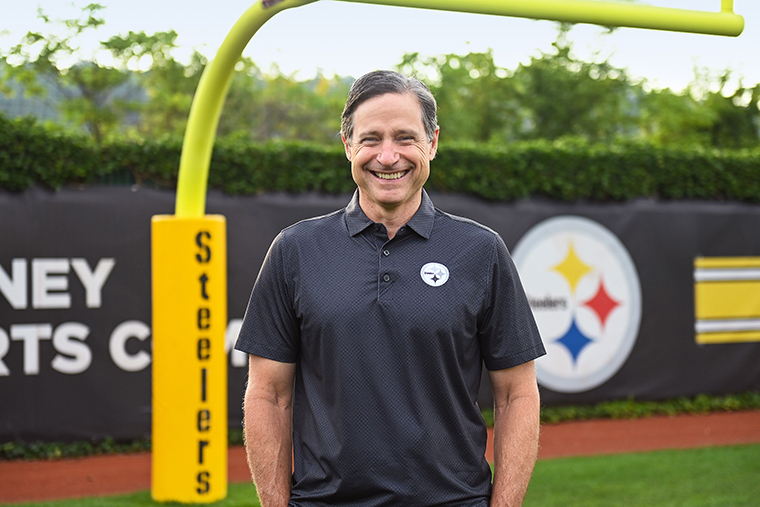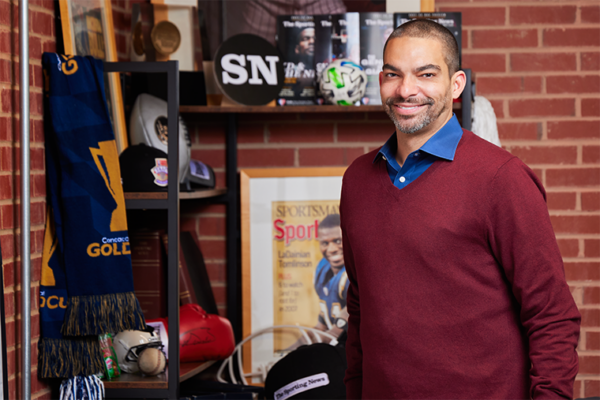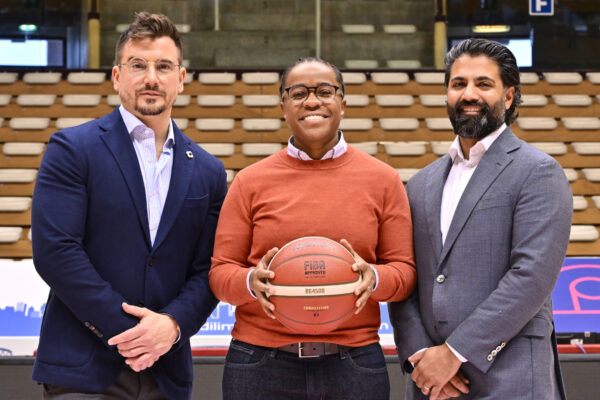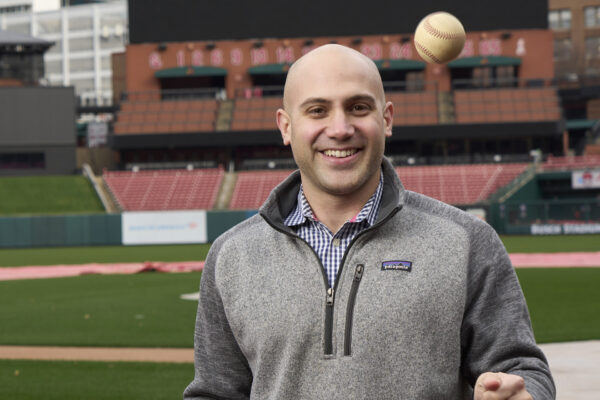The Pittsburgh Steelers were down by six to the Washington Commanders with 2:27 left in an early November game last fall when quarterback Russell Wilson took the snap from center.
Describing the action was play-by-play announcer Rob King, AB ’89, his staccato voice steady as play began:
“Wilson settles back. Raises the foot. Gets the snap. Back to pass. Lookiiing …”
King’s voice rises: “Gonna float it up left for Williams…”
Then it reaches a crescendo of unabashed glee: “And Williams makes the grab! In the end zone! What a throw! What a catch!”
The touchdown sealed the win while King’s call sealed another Steelers memory for a legion of fans listening in. Not bad for a guy in his first season as an NFL announcer, the pinnacle of a broadcasting career that began while King was studying English literature at WashU.
It was about midway through his junior year when King figured he’d better start thinking about life beyond graduation. Taking the advice of a roommate who said, “You like sports. Go do that,” he took a broadcasting class at nearby Forest Park Community College and secured an internship at St. Louis’ KPLR-TV. “That changed the trajectory of my career,” he says. “I learned the whole industry on the go.”
One thing led to another, as it typically does when hard work meets opportunity. He was hired as a producer at KPLR and then later became an on-air personality. At every step, he was doing every task required of a broadcast, from reporting to writing to editing to making it look easy in front of a camera.
From there, he had stints in Utica and Syracuse in New York, returned to KPLR and then eventually landed in Pittsburgh, where he has worked since 2000 covering the Pirates and the Penguins. Along the way, he picked up a gig being a studio reporter of the Steelers’ broadcasts. Last spring, he was tapped to replace Pittsburgh broadcasting legend Bill Hillgrove. He was ready for his moment, because he’d spent a lifetime preparing for it.
“When I was in St. Louis, I did play-by-play for every sport you can think of, even polo matches,” he says. “And I prepared for every broadcast like it was the seventh game of the World Series. That’s what the job demands.”
But for King, that’s not work. “I love memorizing rosters and statistics. I love watching practice,” he says. “There’s no part of it that feels like an endurance test. It’s all fun. Then that three hours in the broadcast booth doesn’t feel like pressure at all.”
He learned the value of digging deep from his liberal arts courses. “I learned that at WashU. I really did,” he says. “I had a teacher who pulled me aside and said, ‘You’re glib, and that’s not necessarily a good thing.’ What she meant was that I could probably bounce along on the surface of life and be just fine. Or I could dig in and do it right. It made me reexamine what was important to me.”
For now, that’s his family, the city of Pittsburgh and a job broadcasting an NFL team that he will never take for granted. “I’m back to my broadcasting roots,” he says. “And I just love football.”



